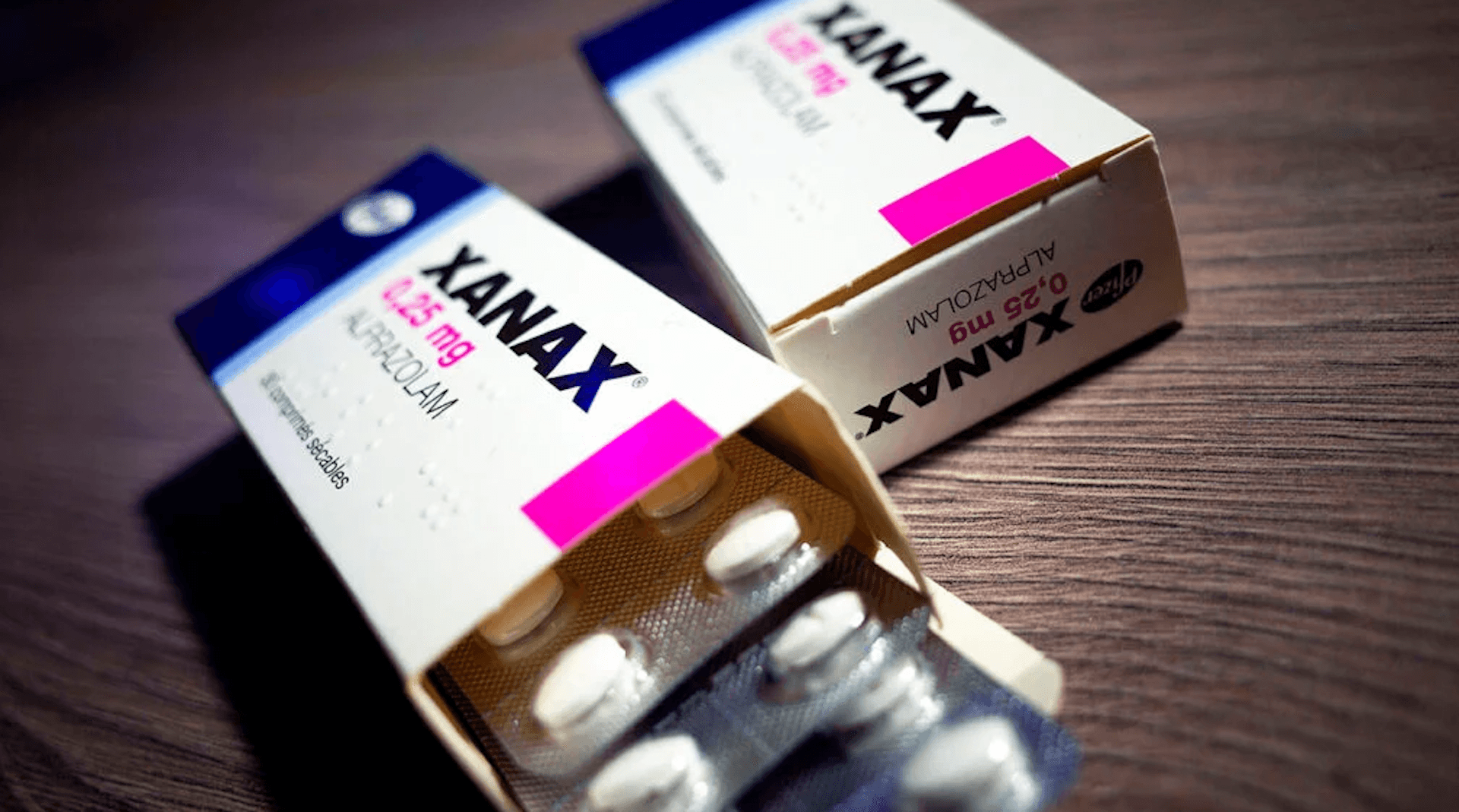Does Xanax Help With Panic Attacks? When and How It’s Used


Wondering does Xanax help with panic attacks? Learn when it’s prescribed, how it works, and what to consider before using it to manage acute anxiety symptoms.
Panic attacks can be overwhelming—racing heart, shortness of breath, and a sudden wave of fear that feels impossible to control. If you or someone you care about struggles with these episodes, you may wonder: does Xanax help with panic attacks? As a fast-acting medication, Xanax (alprazolam) is commonly prescribed to manage acute anxiety symptoms—but it’s not without risks.
At The Forge Recovery Center, we understand the importance of finding the right treatment path, especially when mental health and substance use concerns overlap. In this article, we will explore how Xanax works, when it's used, and what you should consider.
Understanding Panic Attacks

A panic attack is a sudden, intense episode of fear or discomfort that peaks within minutes and often occurs without warning. Unlike general stress or worry, panic attacks can feel completely paralyzing—even when there's no actual danger present.
Symptoms of Panic Attacks
Common symptoms include:
Rapid heartbeat or palpitations
Shortness of breath or a choking sensation
Chest pain or discomfort
Dizziness or lightheadedness
Sweating or chills
Nausea or stomach discomfort
Tingling sensations or numbness
A sense of unreality or detachment (derealization or depersonalization)
Fear of losing control or dying
Many people report feeling like they're having a heart attack or losing their mind during these episodes.
Triggers and Risk Factors
Panic attacks can be triggered by:
High-stress situations or trauma
Phobias (e.g., fear of crowds, flying, or confined spaces)
Withdrawal from drugs, alcohol, or certain medications
Caffeine or stimulant use
Genetic predisposition or family history of anxiety disorders
However, some attacks happen unexpectedly, without a clear cause.
Panic Attacks Vs. Anxiety Attacks
Though often used interchangeably, panic attacks and anxiety attacks are not the same. Panic attacks are clinical events recognized by diagnostic criteria (such as those in the DSM-5), typically with abrupt onset and intense symptoms. Anxiety attacks, by contrast, build more gradually and are tied to a specific stressor or situation. They are not officially recognized as a medical diagnosis but are still deeply distressing.
At The Forge Recovery Center, we recognize how debilitating panic episodes can be—and how essential it is to get the right support.
What Is Xanax?

Xanax, the brand name for alprazolam, is a prescription medication classified as a benzodiazepine. It’s most commonly used to treat anxiety-related conditions, especially those involving acute, overwhelming episodes of fear—like panic attacks.
How Xanax Works
Xanax works by enhancing the effects of gamma-aminobutyric acid (GABA), a neurotransmitter in the brain that slows down nerve activity. When GABA levels are increased, the nervous system becomes more relaxed, resulting in a calming effect on both the body and mind. This makes Xanax especially effective at reducing the intensity of panic symptoms—fast.
Approved Medical Uses
The FDA has approved Xanax for:
Generalized Anxiety Disorder (GAD)
Panic Disorder, with or without agoraphobia
Short-term relief of anxiety symptoms
While it's not a cure, Xanax can offer quick relief during a crisis. However, because of its short duration of action and high risk for dependence, it is typically prescribed for short-term or as-needed use—not as a long-term solution.
At The Forge Recovery Center, we often see individuals who began taking Xanax for relief but found themselves struggling with dependence over time. That’s why it’s essential to use medications like Xanax under close medical supervision, especially if you're also dealing with co-occurring substance use or mental health challenges.
Are You Struggling with Mental Health or Addiction?
We Can Help. Call Us Now!
CALL: 877-839-1772
Efficacy of Xanax for Panic Attacks
Xanax is often prescribed for panic attacks because of its fast-acting relief. For individuals in the middle of a terrifying episode, that quick response can feel life-saving—but it’s important to understand both its benefits and its limits.
Fast Onset, Short Relief
Xanax typically starts working within 30 to 60 minutes, making it highly effective for sudden, intense panic attacks. Its calming effect can last about 4 to 6 hours, helping to ease symptoms like racing heart, shortness of breath, and overwhelming fear.
Clinical Backing
Research supports the use of Xanax (alprazolam) for acute panic disorder, especially in the short term. It helps reduce both the frequency and intensity of panic attacks when taken under medical supervision. Because it acts quickly on the central nervous system, it’s often used as a “rescue” medication—not unlike how an inhaler is used during an asthma attack.
Not a Long-Term Solution
Despite its effectiveness, Xanax isn’t meant for long-term use. Over time, your body can build a tolerance, requiring higher doses for the same effect. This increases the risk of dependence, withdrawal symptoms, and even rebound anxiety—where symptoms return more intensely once the medication wears off.
At The Forge Recovery Center, we’ve helped many individuals who started taking Xanax for panic attacks but eventually needed support to break free from its grip. That’s why we emphasize personalized treatment plans that address both the symptoms and root causes of panic disorders—offering safer, more sustainable paths to recovery.
Potential Side Effects and Risks
While Xanax can provide fast relief during a panic attack, it’s not without significant side effects and risks—especially when used improperly or without close medical supervision.
Common Side Effects
Many individuals experience mild to moderate side effects, such as:
Drowsiness
Dizziness
Fatigue or sluggishness
Impaired coordination or slowed reflexes
These effects can interfere with daily tasks, especially activities like driving or operating machinery. Even when taken as prescribed, Xanax can leave you feeling sedated or mentally foggy.
Serious Risks
Longer-term or higher-dose use of Xanax increases the likelihood of more serious outcomes:
Physical dependence: Your body may start to rely on the drug to function normally.
Withdrawal symptoms: Stopping Xanax abruptly can cause tremors, rebound anxiety, insomnia, and in severe cases, seizures.
Cognitive impairment: Prolonged use may impair memory, attention, and decision-making skills.
Emotional blunting: Some users report feeling emotionally numb or detached from their environment.
Risk Factors for Misuse and Addiction
Xanax has a high potential for misuse, especially among individuals with a history of substance use or unmanaged mental health conditions. Because of its calming effects, some people begin using it more frequently than prescribed—or in higher doses—to self-medicate stress, trauma, or insomnia.
Dangerous Interactions
Xanax becomes especially risky when mixed with alcohol, opioids, or other central nervous system depressants. These combinations can slow breathing, increase sedation, and significantly raise the risk of fatal overdose.
At The Forge Recovery Center, we understand how easy it is to become dependent on a medication that once brought relief. Our integrated treatment approach helps clients safely manage withdrawal, rebuild mental clarity, and develop healthier coping strategies that support lasting recovery.
Are You Struggling with Mental Health or Addiction?
We Can Help. Call Us Now!
CALL: 877-839-1772
Alternative Treatments for Panic Attacks

While Xanax can offer rapid relief during a panic attack, it’s not a long-term solution. Sustainable recovery often requires a more holistic, evidence-based approach that addresses the root causes of anxiety—not just the symptoms. Here are some of the most effective alternatives:
Cognitive Behavioral Therapy (CBT)
CBT is widely recognized as the gold standard for treating panic disorders. It helps individuals identify and reframe irrational thought patterns that trigger panic attacks. Through structured sessions, patients learn how to manage their fears, reduce avoidance behaviors, and regain a sense of control.
SSRIs and SNRIs for Long-Term Use
Unlike benzodiazepines, Selective Serotonin Reuptake Inhibitors (SSRIs) and Serotonin-Norepinephrine Reuptake Inhibitors (SNRIs) work gradually to regulate brain chemistry and reduce panic symptoms over time. Medications like sertraline (Zoloft) or venlafaxine (Effexor) are commonly prescribed and pose a much lower risk of dependence than Xanax.
Lifestyle Modifications
Daily habits play a huge role in regulating the nervous system. Effective changes include:
Stress management techniques such as journaling, deep breathing, or progressive muscle relaxation
Regular physical activity, which boosts endorphins and reduces anxiety sensitivity
Mindfulness and meditation, which help ground the mind and interrupt the panic cycle
Limiting caffeine and alcohol, both of which can exacerbate anxiety
These tools, while simple, are powerful when practiced consistently.
Support Groups and Counseling
Community support is often underestimated. Speaking to others who’ve experienced panic attacks can reduce isolation and provide valuable coping insights. One-on-one counseling—especially trauma-informed therapy—can also help uncover underlying emotional triggers.
At The Forge Recovery Center, we incorporate these alternative treatments into personalized care plans that promote long-term healing. Whether you’re just starting your journey or looking for a safer approach than medication alone, we’re here to support you.
The Forge Recovery Center’s Approach
At The Forge Recovery Center, we believe that treating panic attacks requires more than just symptom management—it requires understanding the full picture of a person’s life, health, and history. That’s why our approach goes beyond medication to offer comprehensive, individualized care.
Personalized Treatment Plans
Every person’s experience with panic attacks is unique. We create personalized treatment plans tailored to your specific needs, goals, and challenges. Whether you’re struggling with panic disorder alone or facing co-occurring issues like trauma or substance use, your plan will reflect your entire journey—not just your diagnosis.
Integrated Medical and Therapeutic Care
We combine the best of both worlds: evidence-based medical treatment and holistic, therapeutic support. Our team includes licensed clinicians, therapists, and addiction specialists who work together to provide a complete care experience. From managing medications like SSRIs to practicing CBT, we offer a safe, structured path toward lasting stability.
Support for Co-Occurring Disorders
Panic attacks rarely exist in isolation. Many of our clients also face challenges such as addiction, depression, or PTSD. At The Forge Recovery Center, we specialize in dual diagnosis treatment, ensuring that all underlying issues are addressed at the same time—not treated as separate problems.
Focus on Long-Term Recovery
We don’t just help you feel better today—we work to ensure you stay well long into the future. Through relapse prevention planning, aftercare programs, and a supportive recovery community, we help you build a life where panic attacks no longer hold power over you.
At The Forge Recovery Center, healing is possible—and we’re here to walk with you every step of the way.
Are You Struggling with Mental Health or Addiction?
We Can Help. Call Us Now!
CALL: 877-839-1772
Relying on Xanax for Panic Attacks? We’ll Help You Find a Safer Way Forward
While Xanax can provide quick relief during panic attacks, it's not meant to be a long-term solution—and relying on it can come with serious risks. If you or someone you love is struggling with panic symptoms or has become dependent on anti-anxiety medication, The Forge Recovery Center is here to help. We offer personalized treatment plans that address both the symptoms and root causes of anxiety and substance use. You don’t have to manage this alone—real recovery starts with the right support. Reach out to us today.
Are You Struggling with Mental Health or Addiction?
We Can Help. Call Us Now!
CALL: 877-839-1772





